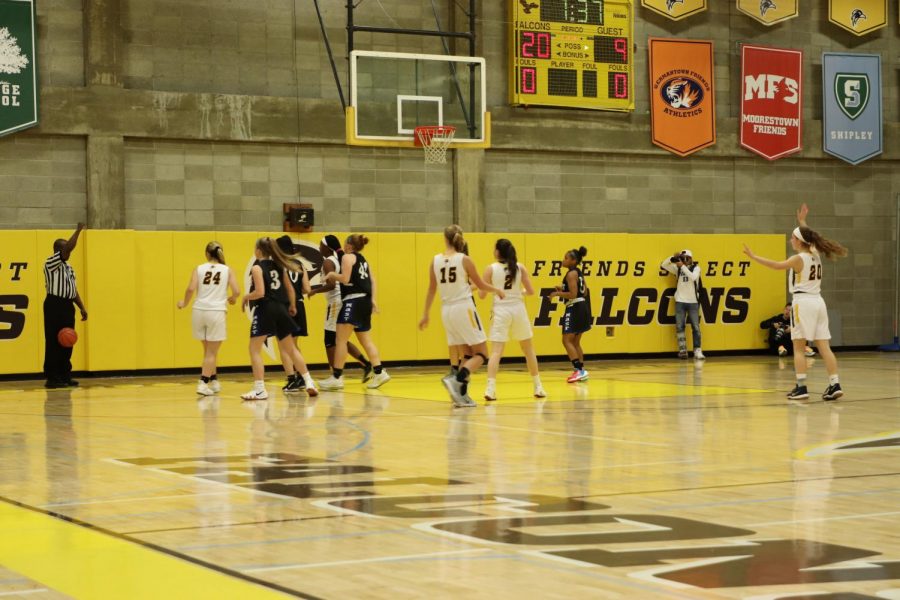When it Comes to Sports, ‘We’ is Better than ‘Me’
I had just stepped off the podium after receiving my third first place ribbon of the day. As a nine year old, I was swimming faster than girls one to two years older than I was and who seemed twice my size. I was achieving consistent and undeniable success, but something was missing. Fast forward twelve months. I traded in my goggles and swim cap for a softball glove and batting helmet. I was one of the worst players on my team, but I was having the time of my life. My success in swimming never quite fulfilled me because of the loneliness. And yet, even though I was struggling as a softball beginner, being part of a team made me feel whole. As someone who meaningfully has participated in both individual sports and team sports, the life lessons I have learned as a member of a team have been, and likely will continue to be, crucial in my personal development. There are several reasons team sports are better than individual sports, namely: (1) they teach collaboration and teamwork, (2) they improve mental health, and (3) they build leadership skills.
Being a member of a team fundamentally requires the ability to collaborate in order to achieve the best results. In life, the ability to get along with others, in even the most stressful and potentially acrimonious situations, is critical. Edutopia explains, “Teamwork is all about collaborating with others to reach a common goal. The diverse pairing of personalities and scenarios will help your athlete become adaptable, persistent, and patient.” The idea that everyone on a team will get along or see things the same way is fiction. The reality is that when nine women take a softball field, those nine minds do not always think the same way. There are disagreements, disputes, and, even at times, drama. But as one of my favorite coaches has implored, “You don’t have to like each other. In fact, there are going to be times where you can’t stand each other. But team, always, must come before individual.” This is enforced by the Janssen Sports Leadership Center, which claims that “working with teammates teaches athletes important life skills such as to respect one another, act in unselfish ways, make good decisions on behalf of the team, and not cut corners.”
Another benefit of team sports is learning how to read your teammates and to pick up on nonverbal cues. These skills are massively advantageous in a non-athletic environment as well. Sports Conflict Institute says that when one cannot pick up on nonverbal cues, there is often “tension, mistrust, and confusion.” I cannot count the number of times I have heard, during post-game interviews, a pitcher say something like, “I could tell by her face what she wanted me to throw and where she wanted me to throw it” or a shooting guard praise her point guard’s passing by recounting, “I could just see in her eyes where the pass was going to be.” This kind of non-verbal communication cannot be learned through individual sports. It is learned only through repetition, practice, and collaboration and is essential in team sports and in life.
As humans, one of the most difficult things we can do is leave our fate in the hands of others. Whether as a patient to their doctor or a student to their teacher, the ability to be vulnerable and rely on others is exceptionally difficult for some, but is a real fact of life. Team sports teach this trust. This kind of unwavering reliance on teammates is essential. Michigan State University says that “A lack of trust can disrupt the team’s focus, decrease performance, and contribute to the loss of a player’s confidence in the team, the coach, and one another.” Playing a team sport forces athletes to build relationships in which they implicitly trust each other. A field goal kicker in football relies on his holder and long-snapper, a field hockey goalie trusts her flyer and defense on a corner, a softball pitcher is dependent on her catcher. While a proponent of individual sports might argue that individual sports are better because they allow a person to have more control over her own fate, the reality is that, in life, we very, very often are forced to put our fate in the hands of others and to trust those who purport to have our best interests at heart.
While being able to rely on others is critical, a team sport also imparts on participants knowing that others are relying on you. Speaking from personal experience, this is one of the most valuable lessons team sports have taught me. As a sixth-grader, the varsity softball coach approached me and told me that, in looking to the future, he was going to need a pitcher and he hoped I would “step up” into that role. I still was relatively new to softball and I had never pitched, but I took very seriously his request and, for the first time in my athletic career, felt like others were depending on me. I cannot begin to even approximate the number of hours I worked on my pitching. I started from the very basics and continued for weeks, months, and years until I had developed, as a ninth-grader, to the team’s number one pitcher. Why did I do this? Because I knew my coach and my team would rely on me and I simply refused to let them down. This feeling, that one’s own performance is something on which others rely, is a hugely important part of team sports and just does not exist, by definition, in individual athletics.
Team sports are proven to improve mental health in children because it provides for socio-emotional development. Dr. Austerman, researcher at the Cleveland Clinic, explains, “If a child is struggling with emotional regulation or interacting with others,…the structured setting of team sports helps create a safe environment to learn important social skills.” For children who struggle with social interactions, participating in an individual sport may provide a way to hide, but playing on a team actually provides developmental benefits which, in the long run and in the real world, will benefit the child to a greater degree. Knowing that your team is always behind you is a great feeling to have for anyone, particularly someone who might not have that experience elsewhere. A team becomes a built-in friend group that will always pick you up when you are not feeling your best or not playing your best. Again while individual sports may be the easy solution for a child with social issues, the harder but more beneficial choice, in the long run, is team sports.
As a leader on many of my teams, I have been able to appreciate the importance of being a leader and how being on a team has helped my leadership skills grow. In individual sports, there is no way to observe leadership and learn how to become a leader because there are no leaders. You are by yourself. In team sports, younger or less experienced players have the older, more experienced players to look up to as leaders and role models. They learn how to effectively lead when they are that older player, and the cycle continues. Being a leader comes with a lot of pressure and responsibility. Knowing that your whole team respects and looks up to you can be challenging, but a good leader knows how to handle that challenge. A good leader represents their team in a proud and respectful manner. Allina Health claims, “kids also learn to interact respectfully with all levels of authority from teammates, to coaches and referees, to the opposing team.”
Being a part of a team has helped me grow as an athlete and even more as a person. I have been able to take the skills I have learned from being part of a team and apply them to every aspect of my life. Because of my experience in team sports, I now work better with others, more effectively deal with adversity and stress, and more willingly put my fate in the hands of others and hold theirs in mine. Thinking back to my nine year old self walking off the podium, I smile. However, my smile comes not because of the success I achieved in the pool that day, but because of the person I have become since stepping off the lonely, isolating pool deck and into the chaotic, loud, and intensely fun and meaningful world of team sports.









